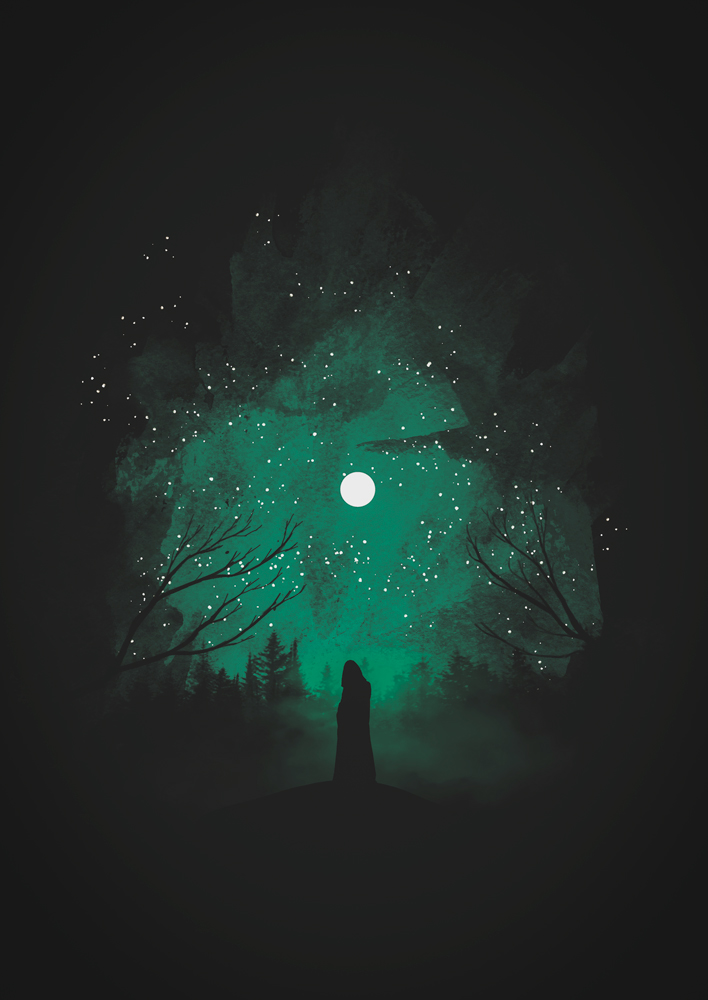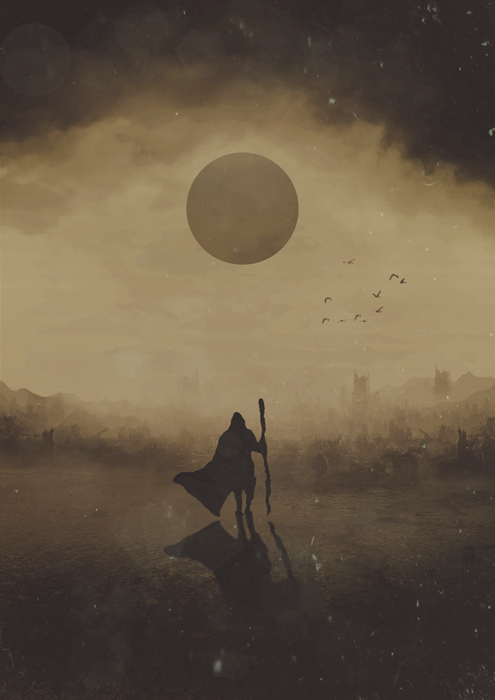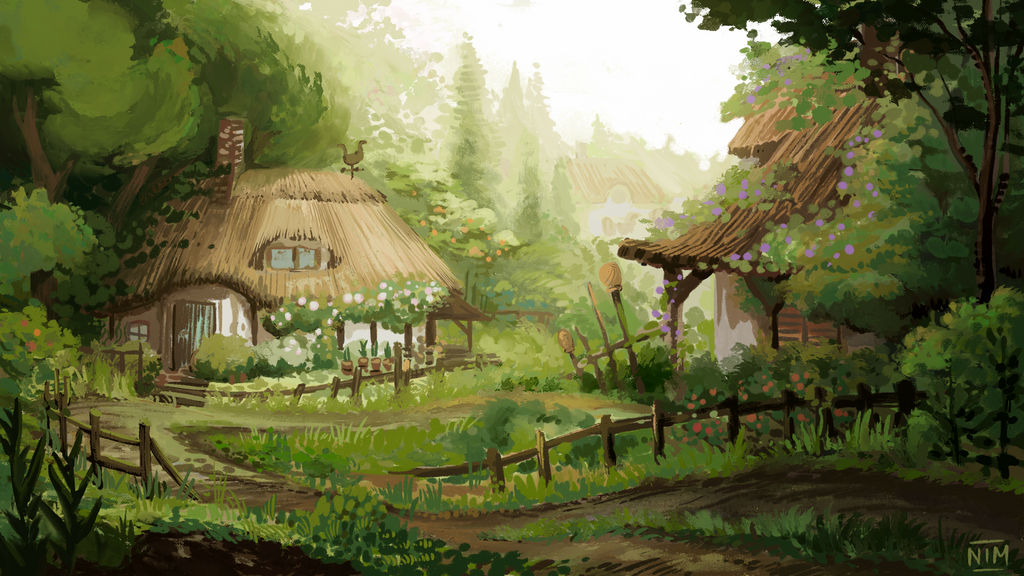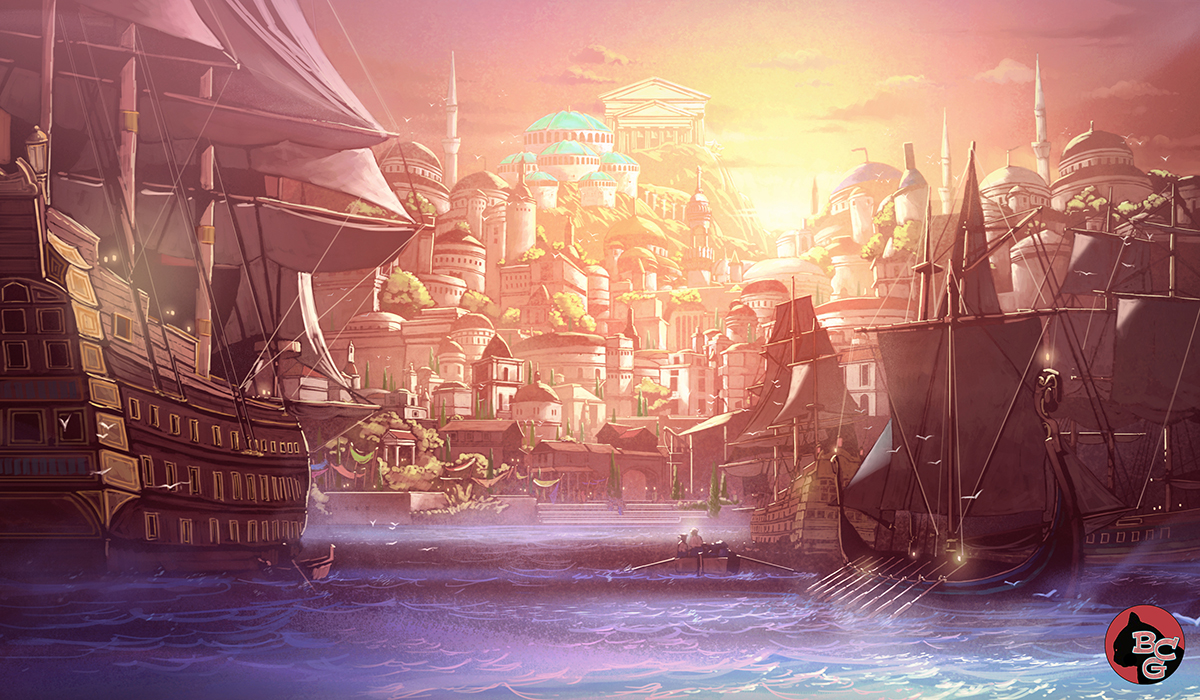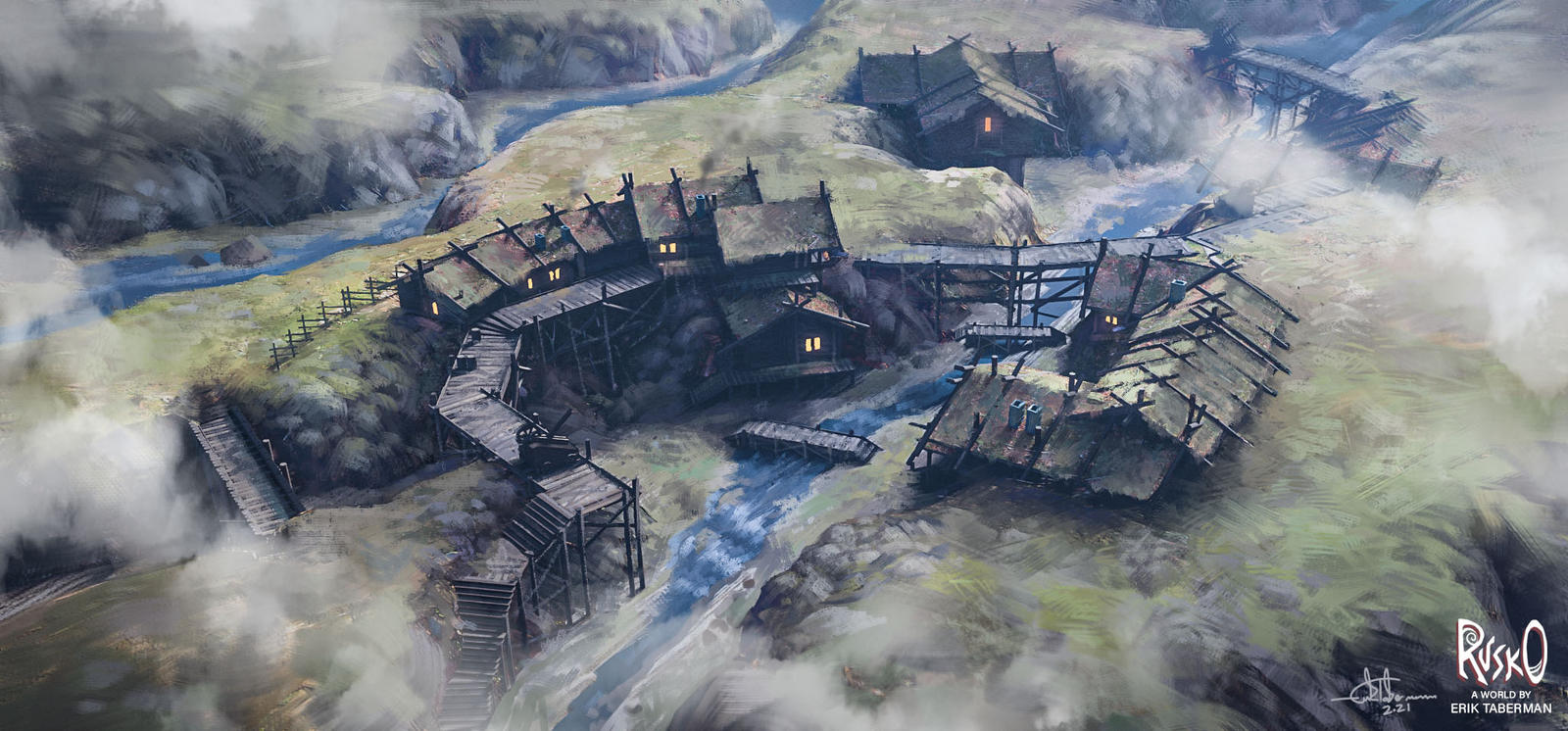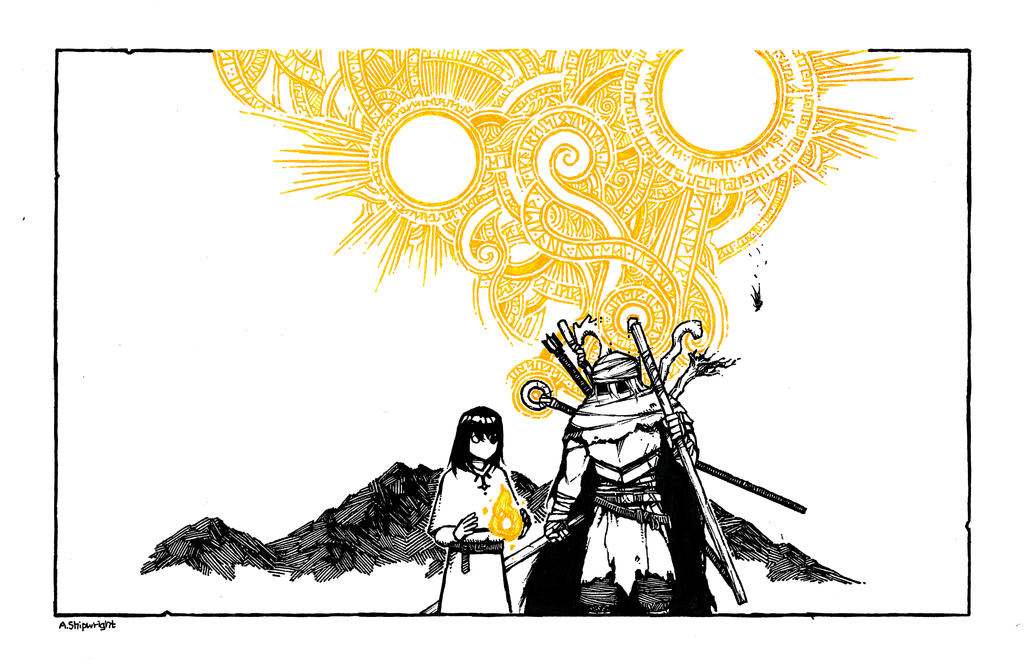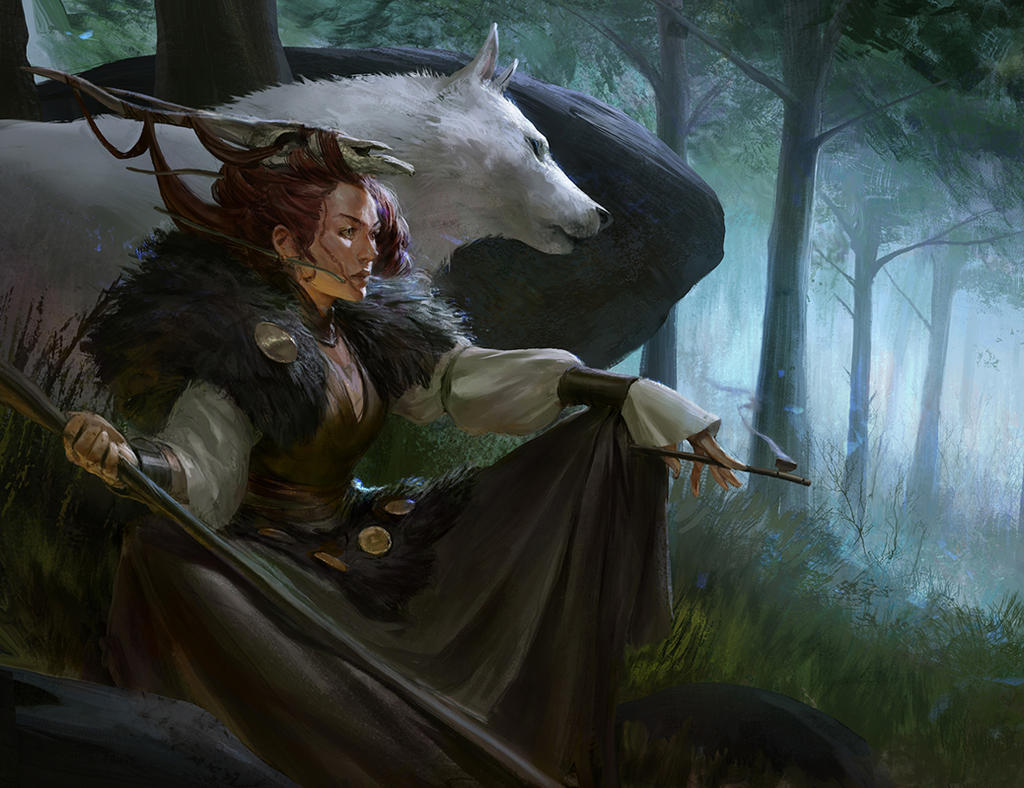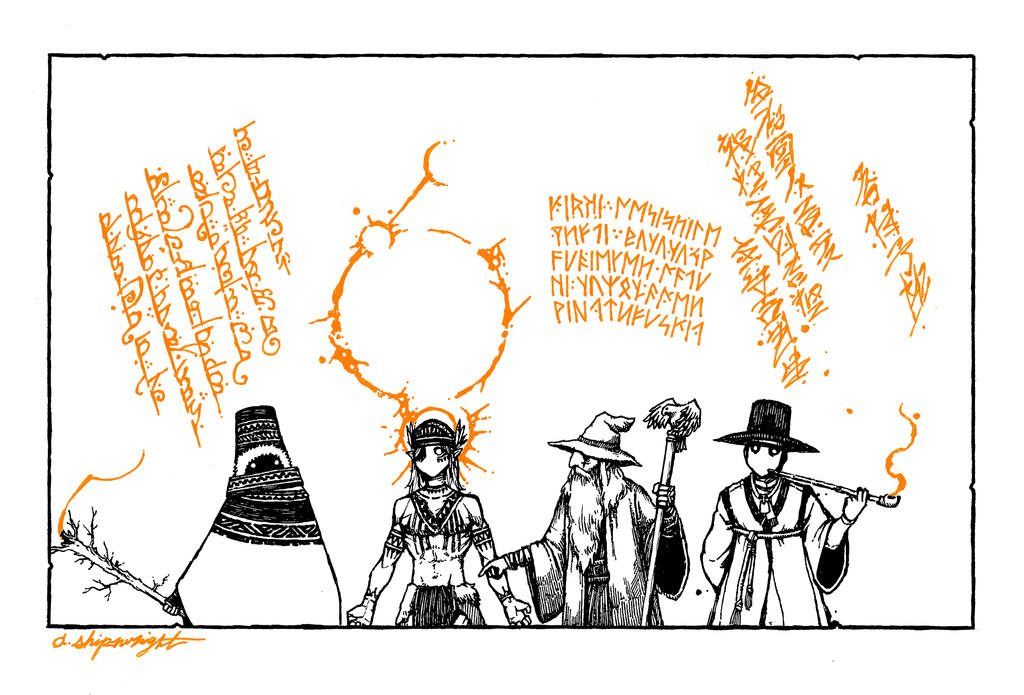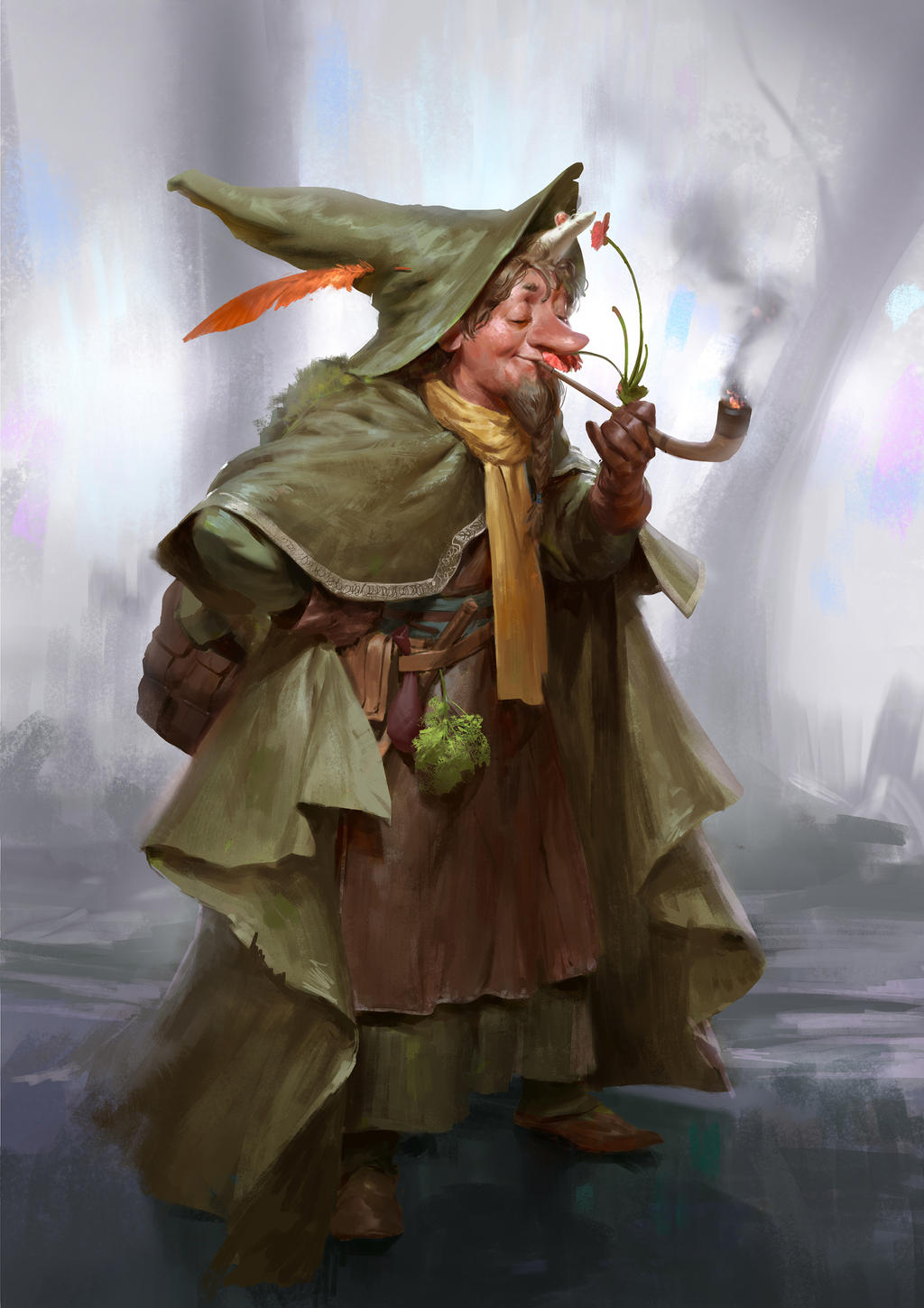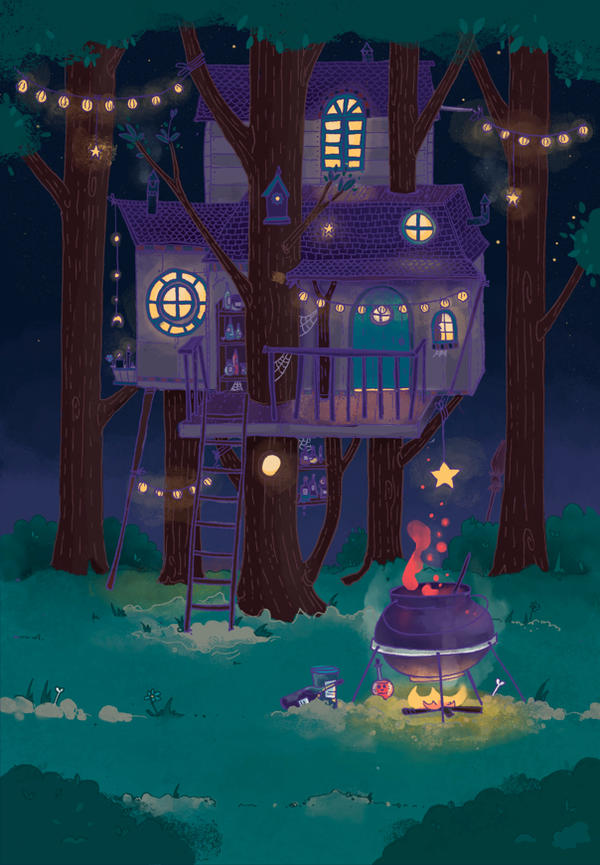First and foremost, I think I want the setting to generally be a nice place to live. I'm rather tired of miserable worlds where everything sucks all the time, although that can of course be plenty of fun. Let's say it's an agrarian and pastoralist society, with a very distributed populace, so there are very few cities and not many big towns either. Manufacturing is mostly small-scale and distributed as well, except for the goods which do really have to be made in towns. Long-distance trade is mostly distributing regional specialties. Polities are largely loosely organized and not governed autocratically, although the variety in such systems is wide. Religion and spirituality are polytheistic and somewhat animist, with local deities minor and major alike abounding. Magic is also widespread at a low level, with abilities natural, learned, and dealt for being not uncommon, if not too common either, and generally increasing quality of life in the world.
Some Places
Seian
The proud city of a thousand gods, where gulls wheel about red granite towers rising high above the bright river Sata wending down from the mountains and sunlight shatters to pieces on the waves of the shining harbor. The white peak of tall Mount Halden, cradle of the revolution, is visible on clear days, far across the bay. The salt-laden air of the docks is bursting with the sounds of a dozen languages, speakers borne there by ships from every known land, near and far, and any good one might desire can be purchased in the crowded markets. Seian had walls, once, and a king, but the walls were torn down to build houses and granaries and libraries, while the king fled rebellion to become a hermit in the wilderness. Since then the city has been ruled by a council of the chosen of the six great families and seven citizens chosen at random. Throughout the year there are festivals great and small for all of the thousand gods, some of whom are worshiped in many and broad lands, while others are only known by the family in whose home their shrine resides or the members of the tallow-renderer's guild. Commonly, these festivals feature intricate dances in the streets, songs and tales of yore, and special foods cooked for the occasion.
The Marshes
A vast expanse of wetlands at the junction of the rivers Slowcourse and Asjen, stretching fifty miles inland from the sea. Cranes soar over great mirrored lakes and stoop to land in shallow reed-choked marshes to partake of the bounty of fish, while canoes and brown-sailed catamarans slice the waters dragging their nets. Towards the sea the marshes turn brackish and estuarine, and the Slowcourse fractures into dozens of little winding passages. Even a small village might be distributed over several miles, as the folk tend to reclusiveness and quiet, their open-walled stilt-houses rising either from what passes for solid land or from the water itself. Most worship is directed to Ehai, the Cat Who Stalks Fate, who is said to take the form of a marsh lynx to help the lost, drowning, and unlucky.
Vogurton
The jewel of the north, and the second of the two true cities of the land, Vogurton is a rustic and sedate yet prosperous and close-knit community, built of stone, pine, and spruce shipped down the river Anni-Fljot from the mountains. In the center of the city's main square there is a circle of thirty-seven huge statues carved from great spruces, each more than ten feet in diameter. These statues represent the legendary company that founded the city, with Queen Varde sitting at their head. The city is still nominally ruled by her descendant, but in truth the Queen has little to do with the regular doings of the city, only interfering in exceptional cases. Many gods are given great faith and ceremony, but the ones above them all are Aia, the Sun, Odial, the Moon, and Giset, the Stars.
Heieth
Heieth is that land which lies in the Gap between Oldroot Peak and Norbils Peak, as well as the land to the east even past the great round mountain known as the Onion. As the Great Steppes lie to the south and it is bordered by mountains west and north, it is arid and watered mostly by snowmelt from the mountains, covered in firs and aspens in the mountains while the lower lands are dominated by juniper, pines, and scrubland. The austere communities are mostly clustered in the uplands or on the small rivers, and are primarily single large complexes built of mud brick. The spirits of the underworld are sacred and said to hold power over the rains, while most other common deities are anthropomorphized animals, such as Coyote the clever and Doe the fruitful.
The Norrens
The Norrens are the broad land east of the Fjallai Mountains and north of Norbil Peak and the Langtaus Mountains. They are sparsely inhabited, being high and steep, covered in great spruce forests and high meadows and moors, which are themselves loosely dotted with stone and wood holds and compounds. The insular people stick mostly to their own families and clans, as each carries the gift of witchcraft in their blood and strives to maintain it purely. As a result, witches are much more common in the Norrens than elsewhere. Ancestor worship is the majority of the religious ceremony, but the spirits of the mountains and streams are quietly revered as the true sovereigns of the land.
The Great Steppes
Vast arid plains separated from the wet sea-winds by the mountains of their northern border, the Great Steppe is the home of a vast variety of nomadic pastoralists and semi-sedentary peoples. Their practices and traditions are far too numerous to enumerate here. The stereotype held of them by northerners and settled peoples characterizes them as violent and dissipated, but in reality, although low-mortality raiding to protect pastureland is common among some groups, they are no more commonly warlike than any of the other folk of the world.
Oldroot Peak
The tallest mountain of all the lands enumerated herein, Oldroot Peak towers above the various ranges which combine to form its base. Oldroot is but a euphemism for the true name of the peak, which is sacred and not spoken openly. The eponymous deity associated with the peak, often called the Mother of Ice and Wind, is in many traditions held to be the progenitor of a ll the deities, lands, and peoples of the world. Climbing the peak is an act of holy devotion, but it is not often attempted, as it is a perilously difficult journey and it is said that only the Wise will be granted passage to the upper reaches of the mountain by the winds and snows. Rumor holds that at the very top of Oldroot is a cave which holds a pool fed by the spring from which the world was born, but none who have gone so far and returned have spoken of what they found.
System and Magic
My preference for systems is still light d20 systems, so that'll probably be the base. Roll vs DC 10, modifiers for ability scores (Strength, Coordination, Endurance, Willpower maybe?) and skills (freeform, of course). Probably no hitpoints or anything, and maybe not even a formalized combat system. I still do like levels/HD as a system for representing metaphysical power, so maybe that'll stick around. The real question is which magic system to use. I've got two in mind, and they both seem almost equally fun, so maybe (maybe) I'll write them both.
Option A: Limited and Specific
With this option, every PC starts with one specific magical power. These would be in three broad types: the gifts of witchcraft, which are innate and heritable, the learned, being things such as brewing potions and having great knowledge of songs of lore (these powers are not necessarily things which would be considered magical in our world), and the dealt for, powers which are contingent on services rendered to or trades made with strange beings.
Some Gifts:- The Unmaking: Unmake structure and order, physical or otherwise, with a word and a gesture.
- The Calling: Call beasts to you without a sound, quell their rages, understand their desires, and convey your own.
- The Knife: Cut across distance with a gesture, more precisely and cleanly than any blade wielded by hand ever could.
- The Changing: Change your form into a kestrel, a jackal, or a pike (the fish). If you stay transformed for too long, you may never change back.
Some Learned Powers:
- Knowledge of how to brew a potion for any ailment, given the requisite materials.
- Haruspicy, palm reading, dowsing, or other forms of divination.
- Great knowledge of the tales, mythology, and history of your people, plus an excellent singing voice.
- Knowledge of drawn wards and magical circles.
Some Deals:
- The presence in the back of the cave gave you a book, in which you can write questions and answers will be written. In return, you must seek out new tales, truths, and secrets, and write them in the book.
- The monolith high on the mountain gave you the ability to see moods and emotions, but every time you use this, you must make an offering of burning cinnamon and rabbit meat.
- The lady made of bees gave you the ability to produce spreads of cream and honey, but you must collect every flower you've never seen the like of before and return them to her.
- The boggart from your childhood home gave you the ability to pronounce blessings and protection on houses and boats. In return, you must paint his name in large lurid letters on the subject of the blessing.
Option B: Freeform and Wide
This option is inspired by the various iterations of WoD Mage games, which I find very inspiring but incredibly cumbersome, passed through the filter of GLOG-style Magic Dice. Basically, there's a list of various basic and specific magical types. You add a die, probably a d6, to your pool for each point you have in the relevant basic and specific types (and maybe another if you have a relevant mundane skill, are using a pre-defined spell, etc), and you probably start with one point in two of the base types and three to distribute as you will in the specific. The sum of the roll of all these dice informs the relative success of the spell. Using magic too overtly and rolling doubles or triples might add to your Imbalance, which can generally cause ill effects in the world at large, and the amount of Imbalance you can safely cause is reduced the more powerful you become.
Base Magical Types:
- Changing
- Channeling
- Controlling
- Creating
Specific Magical Types:
- Brewing (Changing)
- Healing (Changing)
- Mending (Changing)
- Shaping (Changing)
- Illusion (Channeling)
- Perceiving (Channeling)
- Binding (Controlling)
- Charmweaving (Controlling)
- Summoning (Controlling)
- Weatherworking (Controlling)
Gameplay Loop and Campaign Structure
The way I envision this campaign going is that the party simply wanders around, looking for interesting things, and solving problems for people along the way. They might have a destination or not, but it would probably be for the best if they did - a pilgrimage, maybe, or some other quest. Since I expect a lot of the problems will be domestic and fairly quickly dealt with, I think the key to success in this sort of game will be really lingering on the flavor and the texture of the world: beautiful natural and cultivated environments, comfy little villages, hospitality, casual spirituality and ubiquitous religion, weather, little pleasures. Of course, I've never actually run a game like this before, so take this all with a grain of salt.
Some Problems to Solve:
- The spirits of the wood are angry because someone cut more wood than they should have
- Several children have been struck low by a mysterious disease
- There's a property dispute between two sisters and no one's been able to help them resolve it
- The local chanter died unexpectedly without teaching anyone their songs and tales
- Drought or too much rain
- A leopard has caught a taste for human flesh
- A peaceful giant has been trampling fields unknowingly
- A shrine has fallen into disrepair and the villagers don't know the respectful ways to restore it
Home Bases
I expect that this is the sort of game where the party will eventually settle down in a place they particularly like, and they may well want to start with a home base to return to. This will especially make sense if one of the party has made a deal for their powers, as these will tend to be location-based. The emphasis for this sort of play should be community building and becoming respected and trusted authority figures, not any sort of dominance.
Influences/Appendix N
Everything Ursula Le Guin ever wrote, but especially: the Earthsea Cycle, the Annals of the Western Shore, and Always Coming Home
Raven Tower by Ann Leckie
Mage: the Ascension
Mage: the Awakening
